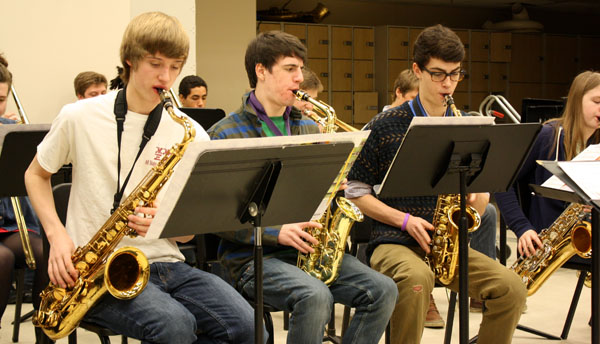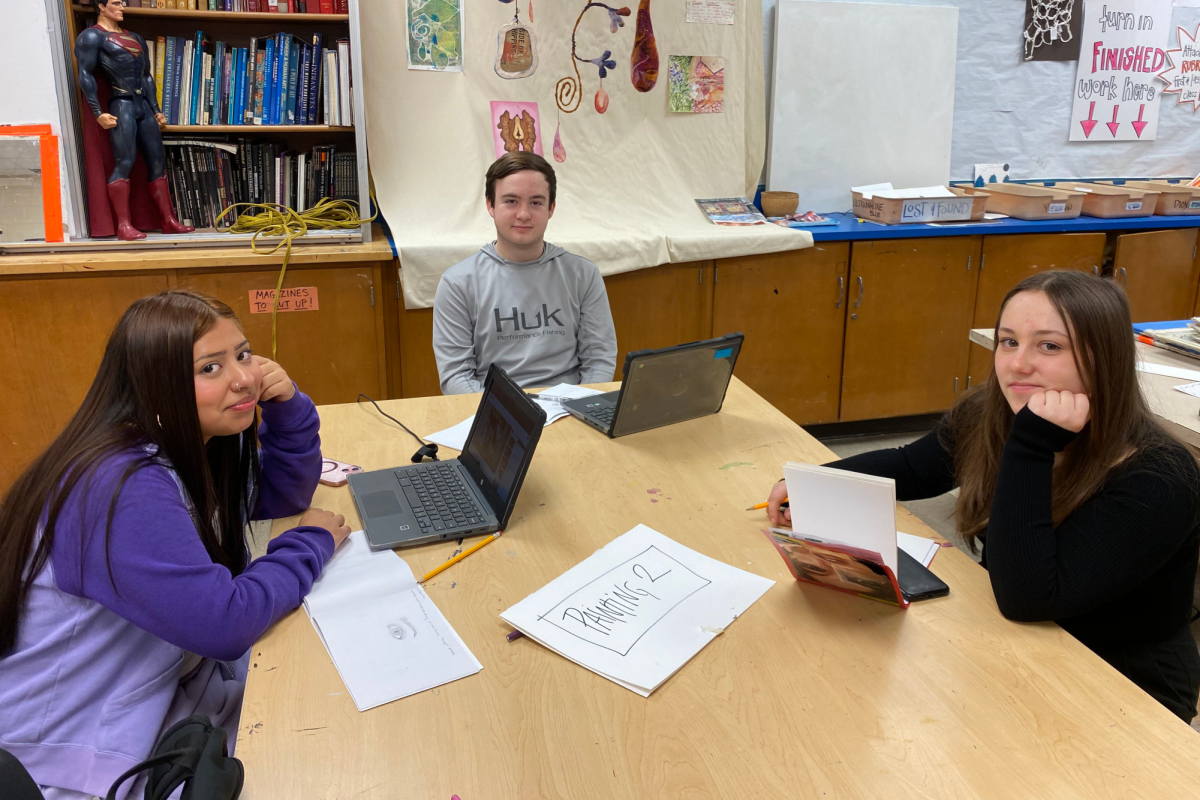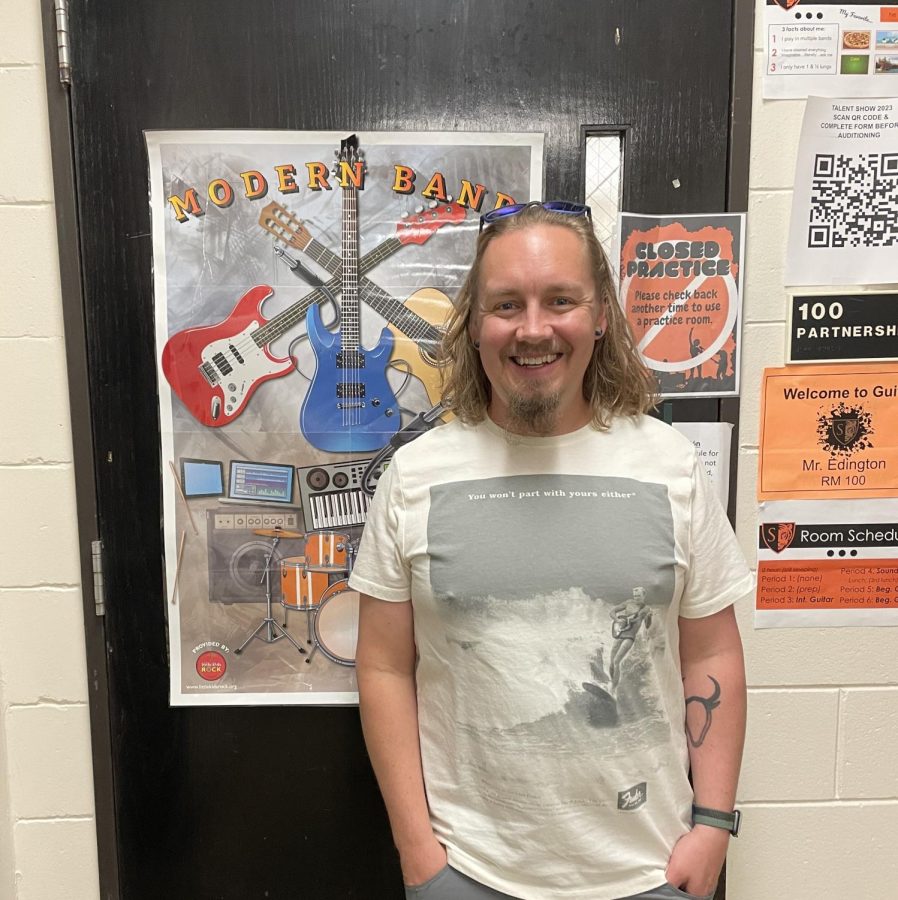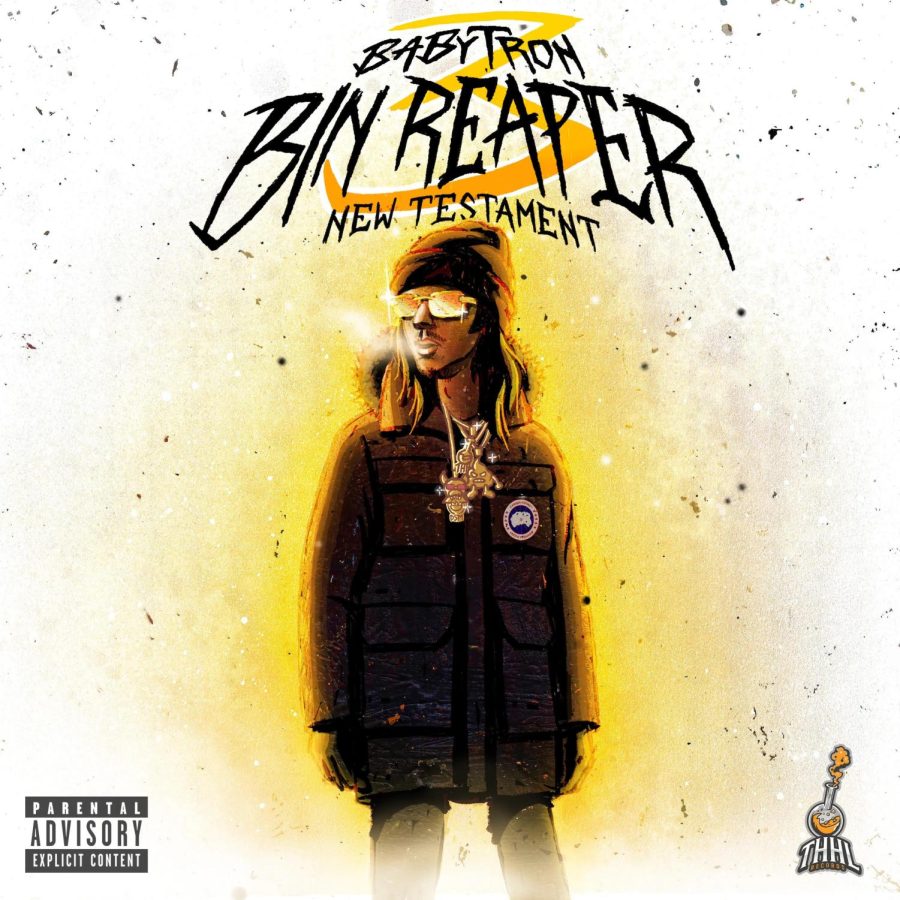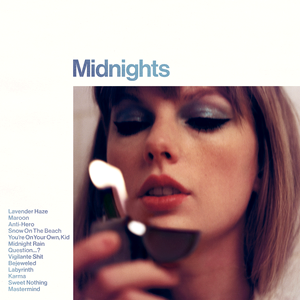Sharing music on social networks is nothing new. From Spotify to Twitter and Soundcloud to Facebook, many people are eager to share what they’re jamming to at the moment. In recent months, several organized groups involving South students have been started via social networks to bond over a mutual love for music.
“Originally it just started when we were just posting on each others walls songs that really bang when you’re driving. Usually it’s big symphonies that just bang,” senior Kiernan Skelly stated. “It was originally Whip Bangers. Big chords, big sections of loud brass or bass. Just something that you could have your windows open and drive down the street.”
Skelly is referring to the South High Classical Bangers Club, a Facebook group recently created by himself and fellow senior Kristopher Bergh with the purpose of sharing favorite classical music songs, most often through links to YouTube. The group, which has approximately twenty members to date, was started this December and is described as “the new classical music club of South High School, dedicated to kick-ass classical pieces of the 1700s, 1800s, and beyond.”
Though it is called Classical Bangers, not all of the pieces posted in the group necessarily have to bang, so to speak.
“People post Chopin nocturnes that are kind of the opposite of bangers,” Bergh said. “Some classical music definitely bangs. Like Tchaikovsky’s 1812 Overture. They fire cannons. That’s like the definition of a banger. But then there’s stuff like Chopin nocturnes where it’s just very soft and calming.”
“The original idea was to have a classical music listening group where we would actually meet and listen to music but that never ended up happening,” according to Bergh. “It still might happen but we just wanted a place to share classical music because we enjoy listening to it.”
“I think it’s mostly to share music that we like, that’s the main goal,” said junior Cole Nelson. “I think it’s kind of a community thing because we don’t have really anywhere else where we can say ‘This is something that I heard, let me play it for you.’”
These communities, however, are not all limited to a certain genre like Classical Bangers. The Group and The New Group are two networks that promote music exploration and discovery across a wide spectrum of genres.
Lee Tran, a senior in the instrumental program at the St. Paul Conservatory for Performing Artists (SPCPA), started The Group. He originally got the inspiration for The Group while writing for a music review site.
“They had their own music-sharing group which fostered a lot of cool music discovery and discussion. When I left the site I could no longer be in that group, so I decided to start my own,” he wrote in an email.
Tran had two primary goals in starting his own music-sharing group: to help people discover different styles of music and to start discussion about posts. Tran attempted to achieve this by adding peers with a wide variety of musical interests.
“When I was adding people to The Group I tried to add many people with many different music tastes so that people could actually discover new music and new styles of music they were not aware of. Because of this many things were posted, from big band music to hip-hop, from classical music to obscure electronica,” he continued.
However, Tran doesn’t believe that his goals were really accomplished. Instead, The Group became more of an echo chamber than a discussion platform.
“In the end I do not believe either of these were achieved. Rather than actually listening to everything posted, people would see somebody post something they already liked and they would like the post and comment something along the lines of ‘I love this song’ or ‘great band,’” he commented.
As well as co-founding Classical Bangers, Bergh also founded The New Group several weeks ago. According to him, “The old group had like 70 members and I feel like the quality of music that people were posting was declining, so I created a new group.”
Like the former group, The New Group is dedicated to a more general music listenership, not a specific genre or style of music. However, some trends have developed among the pieces posted, according to Bergh.
“The new group is more jazz, kind of contemporary jazz. There’s no strict genre that anything has to be in,” Bergh described.
Though Tran attends SPCPA, many South students are involved in The Group and The New Group simply through mutual friends and connections within the Twin Cities music scene.
“I had a few ‘ins’ at South through one of my friends that goes there and one that knows a lot of people. I added those friends and they added some of their friends that went to South,” Tran wrote.
Nelson added that while a wide range of members increases the diversity of musical genres and styles posted in The Group, it isn’t necessarily always productive. “We don’t know some of the people who are posting, so that kind of makes me less interested in what they’re posting,” he opined.
Sam Holt, a senior, is an active participant of all three groups. As a musician, Holt uses social networking groups to promote his own work. “I love it, it’s a great platform for me to share my own music,” he said. “People on The Group are interested in music similar to mine. Indie music is my passion and that’s what The Group is.”
Tran maintained that as long as members contribute to the community in other ways, he doesn’t mind when they share their own pieces.
“Some of the people that promoted their music on The Group would also show other music and contribute to discussion, so those people I had no problem with,” he stated.
“But there were some people that contributed nothing to the general micro-community and then would randomly post a video of their new song and continue to never contribute anything. I never approved of that.”
However, not all members use the groups to post or even discuss music, according to Nelson.
“I try to be on those groups and check out what people are posting. If it sounds interesting I’ll probably listen to it,” he said. “It’s not like a requirement to like or comment or post, even. Some people don’t even post, they just look at what’s up.”
“I kinda just use it to find music myself. I like what people post,” said senior Emily Kampa, a member of Classical Bangers. “I like just going to the website and pulling up some classical music and doing my homework. YouTube is a good friend of mine.”
Part of the reason Skelly appreciates classical music is because of its versatility, as well as the dedication required to compose each piece.
“It’s appealing because it’s music that you can use as background music for doing homework, or you can listen to it and really dig deep into it,” he stated. “And more than any other genre, the artists, the composers, spend a lot of time and really put themselves into the music.”
Kampa said that part of the reason she enjoys listening to classical music is because she has been exposed to it through her involvement in the band program, as a clarinetist in Wind Ensemble.
“We do a lot of listening activities in class that show me a lot of different composers,” she commented. “It’s like I’m always reminded, from doing band everyday, to listen to classical music.”
Nelson concurred, adding that as a classical musician, he is able to recognize the artistry behind the music, a skill he wouldn’t necessarily have if he was not involved in South’s band program.
“I have the ability to appreciate it more because I feel like if I wasn’t playing music I would just be like, ‘What is this? This is really boring,’ but because I understand a little bit more what’s happening in the music then I appreciate it more,” he said.
“There’s a lack of recognition for classical music, [but] a lot of it is just as, if not more, enjoyable than some rap music or other popular music. And certainly pop music in itself is just stupid right now,” he continued, adding that for him, “starting to listen back to some classical stuff is a good way to feel better about the music scene.”
Huber noted that a large number of the members of both the general music groups and Classical Bangers are in the jazz program, simply because of the community bonds that have formed within the band.
“At least in the jazz group we’re a very close knit group because we all know each other,” he stated. “There’s a lot more free exchange of ideas because we see each other every day during zero hour.”
While a good deal of the members of Classical Bangers are also part of the music programs at South, including band, choir, orchestra and jazz band, membership is not limited to students in these programs.
“There are plenty of people in the group that aren’t in a band program, they just really like music. So all you have to do is like music a lot and a lot of different kinds,” according to Huber.
Kampa added that while the majority of classical music fans are involved in the music programs, sometimes the classical music listenership at South can be somewhat unexpected.
“[It’s] definitely the band kids, but then sometimes you’re surprised and you’ll see this guy listening to rap and then he’s like, ‘Yeah, I like classical music!’” she explained. “I think everyone likes classical music.”
“It’s hard, because sometimes you feel like the jazz and classical listeners are the minority in the school because not a lot of people listen to them,” said Huber.
“But then you realize when you join Classical Bangers that there are a lot more people that listen to them than you would think.”

